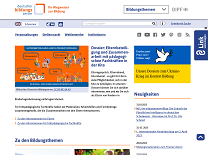National Youth Council – english information https://www.bildungsserver.de/bisy.html?a=7432&spr=1
The Rwanda National Youth Council is a Government institution which started in February 1998. The National Youth Council comprises of the following 3 major organs: The General Assembly, the Executive Committee and the Executive Secretariat. The mission of the National Youth Council is to educate the youth on the culture of patriotism, to sensitise the youth on the fight against Genocide ideology and on the fight against divisionism and other acts that may not be productive to them; also, to bring together the youth using various mechanisms like training, sports, entertainment and public debates aimed at delivering constructive education to them, to sensitise them on productive activities and other activities aimed at developing them and the nation, to mobilise the youth on preservation and protection of environment and to advocate for the youth at all levels. Furthermore, its tasks are the sensitisation in science and technology and the initiation into productive job creation, also, to put in place and monitor programmes to sensitise the youth on hygiene, AIDS prevention and other diseases. Moreover, the National Youth Council works for the promotion of cooperation between the youth of Rwanda and that of foreign countries.

